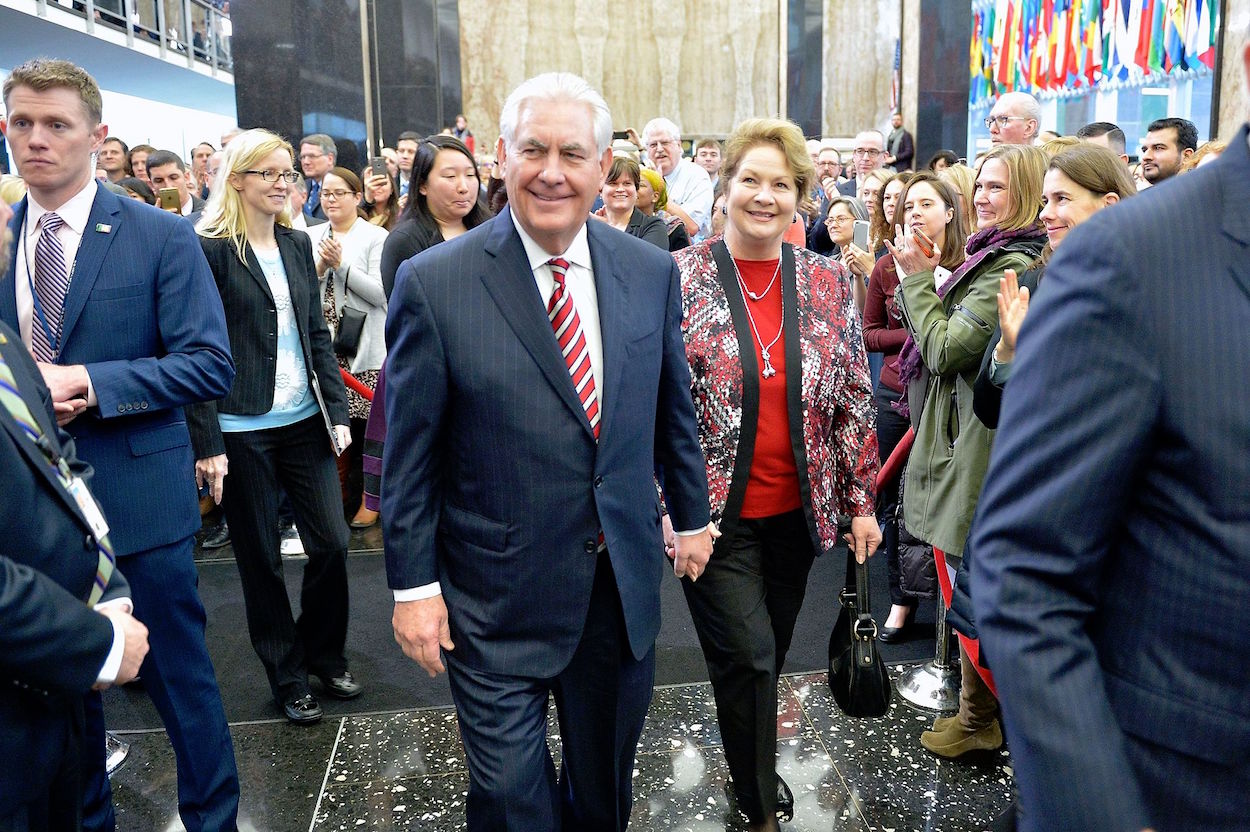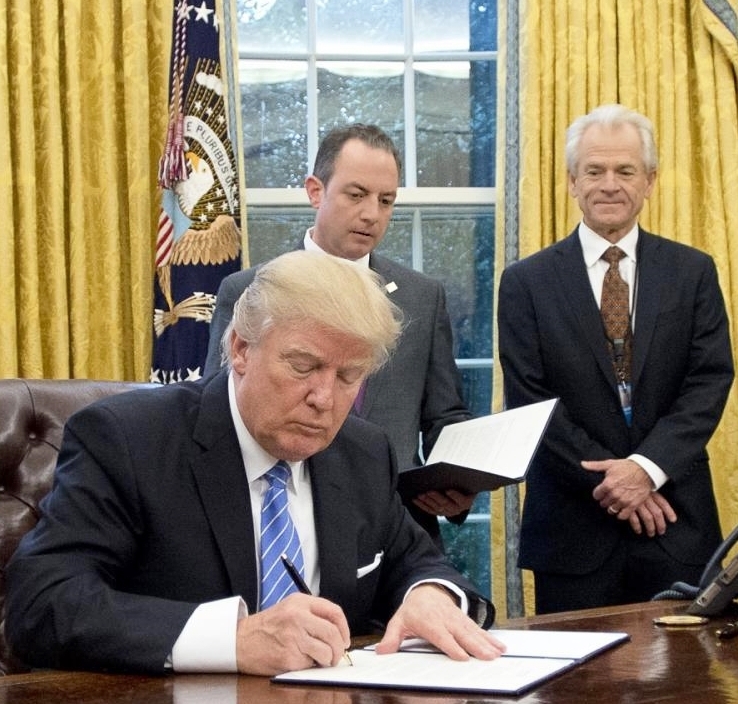by Brian Hioe
語言:
English
Photo Credit: US Office of the President/WikiCommons/CC
WITH THE replacement of Secretary of State Rex Tillerson with Mike Pompeo, head of the CIA, it appears that the protectionist wing of the Trump administration is again ascendent. As such, fears prevail that individuals within the Trump administration viewed as stabilizing of it will similarly depart the Trump administration in the near future.
When named as Secretary of State, it was originally suspected by many Tillerson, the former CEO of Exxon-Mobil, would prove similarly unorthodox to Trump. Tillerson was an individual from the private sector with no previous government experience, and so it was feared that Tillerson would, like, Trump, seek to break from long-established norms of the American State Department. Questions were also raised about Tillerson’s close ties to Russia, going back to his leadership of Exxon-Mobil.
 Rex Tillerson. Photo credit: White House/CC
Rex Tillerson. Photo credit: White House/CC
Tillerson’s wide-sweeping cuts to State Department staff would prove controversial, with continual accusation that the State Department was understaffed dogging Tillerson through his tenure. This was seen in line with the fact that the Trump administration has failed to pick White House staff ahead of time during presidential campaigning, resulting in the Trump administration being understaffed across the board, and the general disarray of the Trump administration after it took office. And, as with other elements of the Trump administration, the State Department has experienced a great deal of turnover under Tillerson’s tenure, with career diplomats and senior staff alike departing, and questions raised about the future of the State Department with such attrition in career staff.
Nevertheless, Tillerson would prove to be an unexpectedly moderating force on the Trump administration alongside General HR McMaster, who was named National Security Advisor after the departure of Michael Flynn due to the political fallout from charges against Flynn for improper contact with the Russian ambassador to America, Sergey Kislyak. Despite coming also from a business background without any political experience, Tillerson was in many ways what Trump precisely was not—namely, while as head of the Trump Organization, Trump did not actually conduct much international trade while constructing the perception that he was at the head of an organization which conducted international business dealings; as Exxon-Mobil CEO, Tillerson was in reality such an individual. And so, given his position and experience, Tillerson knew that it was primarily to America’s benefit and that of the present global economic order to stick to policies of free trade, as extensions of American economic power internationally, as well as to maintain a global military presence.
During his tenure, Tillerson was at odds with other rogue elements of the Trump administration, such as Trump’s son-in-law Jared Kushner, who was highly pro-China due to his family’s business ties with China, and was eventually removed from his position of power within the administration. But in this way, Tillerson decidedly belonged to the “globalist” wing of the Trump administration insofar as he did not call for American withdrawal from international affairs combined with hawkish foreign policy against American rivals in the same way as individuals such as Steve Bannon, Peter Navarro, and John Bolton, members of the protectionist, hawkish wing of the trump administration, instead advocating for an adherence to the current global economic order in the way of National Economic Council director Gary Cohn.
But the tides are changing again in the Trump administration. Given increasingly open disagreements between Tillerson and Trump, it was long rumored that Tillerson would eventually depart the Trump administration. Though Bannon had long since been ousted from the Trump administration, the fall from grace and ouster of Gary Cohn, who called for the maintenance of the current economic status quo, which led to the return of rogue economist Peter Navarro—who emphasizes protectionist trade policy combined with an aggressive stance against China—was an early sign that Tillerson’s influence was on the wane again. And so the deck of cards of the Trump administration has been reshuffled again.
 Peter Navarro, alongside now former White House chief of staff Reince Priebus, standing behind Donald Trump. Photo credit: White House/CC
Peter Navarro, alongside now former White House chief of staff Reince Priebus, standing behind Donald Trump. Photo credit: White House/CC
One can expect increasingly incoherent foreign policy and trade policy from the Trump administration going forward. Peter Navarro, for example, notably is a hawk against China, despite the fact that he was also an instrumental force behind the Trump administration’s withdrawal from the TPP trade agreement which previous American presidents engineered with the hopes of having it serve as an economic means of containing China without necessarily resorting to armed conflict. The “protectionist” wing of the Trump administration has in many cases evidenced a failure to grasp basic economics, as best observed in drastic and sudden increases to tariffs on steel and aluminum which threaten to drag the US into a trade war it cannot win.
And although it is not impossible that the pendulum will again swing and that the wing of the Trump administration which seek to restrain unstable actions by Trump to preserve the present international economic and geopolitical order will take power in the future, dangerous actions by the Trump administration are likely in the future—particularly with sensitive meetings possible between Trump and North Korean leader Kim Jong-un—both the heads of nuclear powers. The future may look dark, then.

